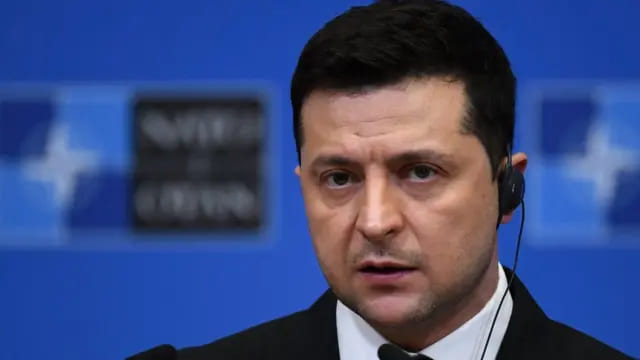
Ukrainian President Volodymyr Zelensky has emerged as the central figure in a tense geopolitical standoff, winning explicit support from European leaders and NATO just days before a scheduled meeting between U.S. President Donald Trump and Russian President Vladimir Putin. Kyiv fears the August 15 summit in Alaska could result in a deal negotiated without Ukraine’s participation — a scenario Zelensky warns would be “dead on arrival.”
European and NATO Support for Ukraine’s Sovereignty
In a joint statement, the leaders of Britain, France, Germany, Italy, Poland, Finland, and the European Commission insisted that any diplomatic settlement must safeguard Ukraine’s sovereignty and Europe’s security. NATO Secretary General Mark Rutte reinforced that “Ukraine must decide its own geopolitical future” and that no agreement should legally recognize Russian control over Ukrainian territory.
EU foreign policy chief Kaja Kallas added that the United States has the leverage to compel Russia into serious negotiations, but stressed that both Ukraine and the EU must be directly involved in any talks. EU foreign ministers are set to meet to coordinate a unified approach ahead of the Alaska summit.
Zelensky’s Position: No Peace Without Ukraine
In the wake of fresh Russian strikes in Zaporizhzhia injuring at least 12 civilians, Zelensky renewed his call for tougher sanctions and sustained pressure on Moscow. He made it clear that any agreement reached without Ukraine’s consent would be “unworkable” and “unjust.” His stance reflects a broader concern in Kyiv that Trump’s willingness to discuss territorial “swaps” could pressure Ukraine into ceding land in exchange for a ceasefire.
Pro-Kremlin analysts have floated speculative proposals involving Russia handing over small areas to Ukraine while consolidating its hold over much larger territories. Western military experts caution that such arrangements would not only legitimize aggression but also undermine global norms on sovereignty.
The Shadow of the Trump-Putin Agenda
Trump’s announcement of the summit marked a shift from his earlier threats of new sanctions against Russia. The change in tone has heightened concerns that Washington might prioritize quick diplomatic wins and economic opportunities over long-term security guarantees for Ukraine. Zelensky’s allies worry that the White House could frame a territorial compromise as a “win-win” while leaving Ukraine strategically weakened.
European officials have reportedly prepared a counter-proposal to Trump’s plan, though details remain undisclosed. The aim is to ensure that any peace framework respects Ukraine’s internationally recognized borders and aligns with European security interests.
Historical Context and Strategic Risks
Rutte compared the current situation to the post–World War II stance of the United States toward the Baltic states — acknowledging de facto Soviet control but refusing legal recognition. For Ukraine, such an arrangement would be deeply problematic, potentially freezing the conflict while leaving millions of citizens under Russian occupation.
Beyond Crimea, annexed in 2014, Russia claims Luhansk, Donetsk, Kherson, and Zaporizhzhia as its own, though it does not fully control them. It also occupies smaller portions of other regions, while Ukraine has made limited gains inside Russia’s Kursk region. Analysts warn that any territorial concessions now could embolden future aggression.
Zelensky’s Diplomatic Calculus
For Zelensky, the path forward hinges on maintaining a united front with Europe. Ukrainian political analyst Volodymyr Fesenko emphasized that Kyiv’s alignment with European partners is its “main resource” in resisting exclusion from the negotiation table. The Ukrainian leader’s approach combines active diplomacy with steadfast refusal to legitimize territorial losses.
U.S. Vice President JD Vance acknowledged on national television that any negotiated settlement is unlikely to fully satisfy either side, hinting at the inherent complexity of ending the 3½-year war. However, Zelensky remains adamant that peace must be built on fairness and respect for Ukraine’s sovereignty — not on expedient deals that compromise national integrity.
Conclusion: The Stakes Ahead of Alaska
As the Trump-Putin summit approaches, Zelensky’s role has shifted from a regional wartime leader to a pivotal actor in global diplomacy. The outcome in Alaska could determine not only the trajectory of the war but also the balance of power in Europe for decades to come. Whether Kyiv’s voice will be heard in that room remains uncertain — but Zelensky’s message to allies and adversaries alike is clear: Ukraine will not accept peace at the cost of its sovereignty.
- Main theme: Zelensky’s push for inclusion in the Trump-Putin talks is critical to safeguarding Ukraine’s sovereignty.
- Key question: Will the Alaska summit sideline Ukraine in favor of a U.S.-Russia deal?
- Thesis: Without Ukraine at the table, any agreement risks being both unjust and unsustainable.



